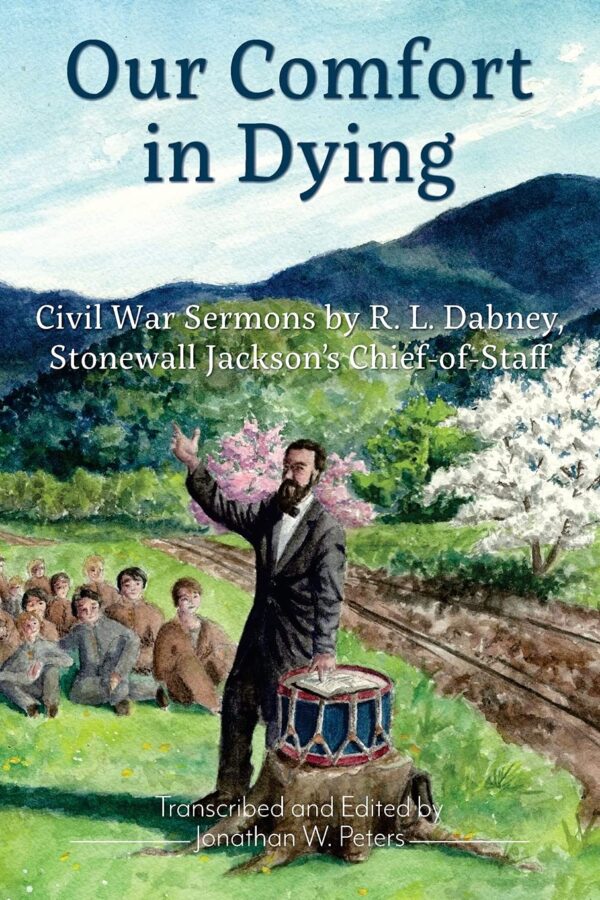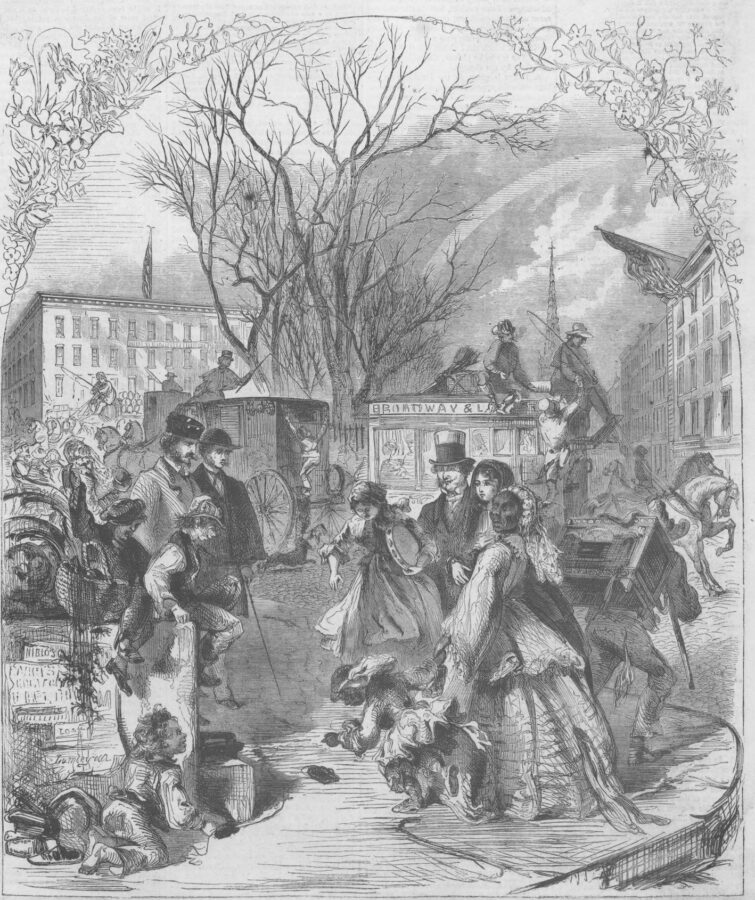Our Comfort in Dying: Civil War Sermons by R. L. Dabney, Stonewall Jackson’s Chief of Staff edited by Jonathan W. Peters. Sola Fide Publications, 2021. Paper, IBSN: 978-0997266641. $24.99.
 The Reverend Robert Lewis Dabney had already made a name for himself in Christian circles when the Civil War broke out. The war’s onset found him a Presbyterian pastor and theology professor in his native Virginia. In 1861, he temporarily left the pulpit and classroom to serve as chaplain to the 18th Virginia, following his soldierly flock to First Manassas. Dabney eventually came to the attention of fellow Presbyterian Thomas J. Jackson (newly nicknamed “Stonewall”), who invited him to join his staff as adjutant general. Dabney accepted a major’s commission and served Jackson through the Valley and Peninsula Campaigns, thereby becoming ever linked to the legendary commander.
The Reverend Robert Lewis Dabney had already made a name for himself in Christian circles when the Civil War broke out. The war’s onset found him a Presbyterian pastor and theology professor in his native Virginia. In 1861, he temporarily left the pulpit and classroom to serve as chaplain to the 18th Virginia, following his soldierly flock to First Manassas. Dabney eventually came to the attention of fellow Presbyterian Thomas J. Jackson (newly nicknamed “Stonewall”), who invited him to join his staff as adjutant general. Dabney accepted a major’s commission and served Jackson through the Valley and Peninsula Campaigns, thereby becoming ever linked to the legendary commander.
Dabney published numerous treatises and sermon during his lifetime, as well as a biography of Jackson. He compiled a dozen of his Civil War messages into a volume that he intended to but never published. Maryland educator Jonathan W. Peters has realized that ambition, editing that original dozen and a number of Dabney’s other wartime sermons in Our Comfort in Dying.
Peters frames the book in terms of both historical and spiritual merit. The book’s dual purpose perfectly reflects Dabney’s own outlook on his wartime ministry. In his original preface, Dabney identified as his “primary object…to glorify God in Christ, and to bless the souls of men, by giving currency…to the doctrines of redemption.” Dabney’s secondary goal was one of “self-defense” against charges that “the clergy of the South were as delinquent as those of the North, in desecrating the pulpit to political agitation” (17). Many students of the Civil War are familiar with how numerous ministers North and South sought to sanctify their respective causes from the pulpit. While Dabney was an ardent and vocal defender of the Confederate cause, his wartime sermons reflect the extent to which he continued preaching repentance, redemption, and moral improvement.
Like many ministers, Dabney as chaplain typically took a particular Biblical text and expounded on its meaning and application to his congregants. His message “Getting Without Paying” addressed the commandment “Thou shalt not steal,” proscribing not only conventional, criminal forms of theft but all unearned forms of gain: laziness at work, dishonest dealing, reckless debts, and gambling. Dabney preached some of his wartime sermons just as he might have to civilian congregations, with little to no reference to the war. In the eponymous message, “Our Comfort in Dying,” the preacher advises listeners, “It is proper that the minds of Christians should be familiar with thoughts of death” (168). He does not state the obvious—that many of the soldiers hearing him might soon face their own demise.
Nevertheless, Dabney did address pressing topics of war and politics during his chaplaincy. In “The Christian’s Best Motive for Patriotism,” he deplored the “angry and unchristian emotions” provoked by “political agitation”; nonetheless, in the face of these circumstances, he enjoined his fellow Confederates to godly conduct and the selection of godly leaders. Like many Civil War Christians, Dabney saw military setbacks as cause for national repentance. In “Public Calamities Caused by Public Sins,” God’s people, he warned, would “come under God’s chastening hand…until they repent and reform,” or face destruction (189). “To have God surely on our side,” he exhorted, “we must also be a righteous people” (192). In the face of one of the greatest rebel setbacks, the death of “Stonewall” Jackson, Dabney still to emphasized first the faith he and the general shared. “My business is, not to praise any man, however beloved and bewailed,” he announced in his memorial sermon, “but only to unfold God’s message through his life and death” (245).
Peters put forth considerable effort in editing and historicizing Our Comfort in Dying. In addition to numerous footnotes, one of his most valuable contributions is a chart chronicling when, where, and which message Dabney preached from his catalog of sermons. Editorially, the book does not dwell particularly long on the Confederate side of Dabney’s worldview, though Peters candidly acknowledges he “sided with the Southern Confederacy in defense of Negro slavery and state sovereignty” (21) and in the postwar South “refused to accept…that newly liberated slaves should be regarded as equals with the rest of society” (36). A footnote directs readers to Dabney’s 1867 book A Defence of Virginia for fuller knowledge of his politics.
Our Comfort in Dying brings together significant works by a Virginian who was notable not only as one of those who “rode with Stonewall,” but also as a major spiritual and intellectual thinker in the Civil War South. Robert Lewis Dabney’s wartime sermons offer a compelling glimpse into the mind of a man who combined ministerial service to God with military service on behalf of Stonewall Jackson and the Confederacy.
Jonathan M. Steplyk received his Ph.D. in History at Texas Christian University and teaches at the University of Texas at Arlington. He is the author of Fighting Means Killing: Civil War Soldiers and the Nature of Combat (2018) and is a regular contributor to the Civil War Campaigns in the West series.

